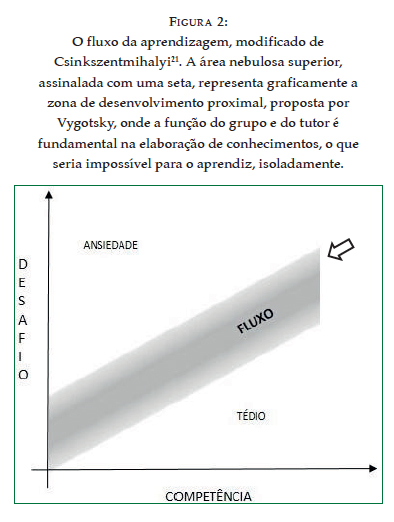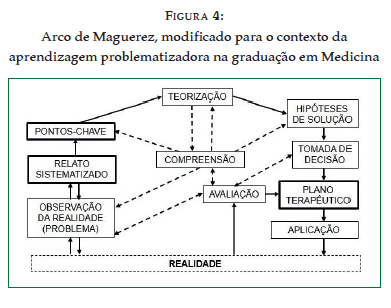Education, at its various levels, plays a role of assimilating a cultural reality and aims to prepare the student to solve problems related to a particular area of knowledge. Among the various theoretical possibilities of the learning process, constructivism has exerted an influence on professional training, as shown mainly by problem-solving methodologies of teaching and learning. The undergraduate course in medicine is, in several schools around the world, a setting for the application of these methods: problem-based learning and problem-solving. Although methodologically different, both deal with areas of potential cognitive development of students, highlighting problems instead of contents as bridges between knowledge of the learner and learning objects. This work summarizes the use of problem-solving methodologies in medical training as strategies for approaching school education with everyday learning professional activities, and proposes a reformulation of the arch of Maguerez that makes the scheme more suitable to the various stages of the training process.
Medical Education; Curriculum; Problem Solving




